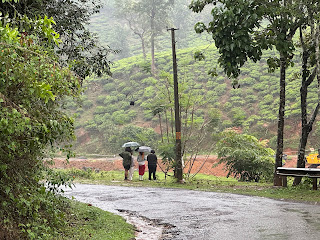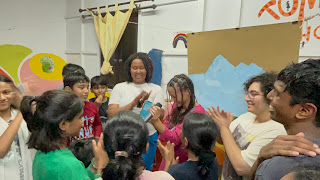Back in Bengaluru, we had the opportunity to meet with the waste picking organization Hasiru Dala. Hasiru Dala, whose name translates to "Green Force" in Kannada, was founded in 2010. It works to tackle the city’s growing waste management problems through sustainable systems and outreach, among a plethora of other things.
Despite the fact that they often go unrecognized, waste pickers play a crucial role in the recycling chain. One of Hasiru Dala’s foci is the informal waste system. In India, there are two types of waste systems, a formal one funded and managed by the government and an informal one which relies on the efforts of waste pickers, traders, and sorters. Hasiru Dala not only supports the informal waste system but also takes charge in civic issues concerning specific neighborhood blocks. In neighborhoods they work in, each street is connected through a group chat in which homeowners can share concerns about things like power cuts or knowledge aboutthe issues faced by laborers, delays in services etc. In a place as large as Bangalore, this is a very innovative way to handle issues that otherwise would struggle to be addressed in a timely manner.
However, as crucial as waste pickers are to the environment and the recycling process, their involvement in these waste management efforts raises questions about inclusivity. It seems that the places that are given the most attention in their efforts are also middle to upper caste neighborhoods. From our three-week stay, which included visits to various neighborhoods, villages, and organizations, it became clear that there is a significant disparity in how waste management and general upkeep is handled across different castes and the space they occupy, especially through the formal system. In particular, the middle to upper caste neighborhoods seemed to receive more focus and better resources for waste management. On the other hand, lower caste areas often face greater challenges and fewer resources. Initiatives such as Hasiru Dala and other organizations we interacted with can only do so much. Until the social and economic disparities between castes are addressed, waste management and other environmental efforts can never truly offer the support and healthy environment that these neighborhoods need.




















.jpeg)











